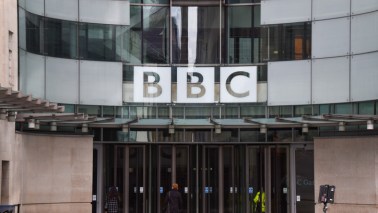Can we make a link between the chopping of 1,500 jobs, mostly in London and New York, by the Swiss banking giant UBS, and the news that the City of London Corporation has come up with a £300 million contribution to the financing of Crossrail, the long-awaited Heathrow-to-Docklands transport link? Well, connecting unrelated news events on any given day and extracting lessons from them is what columnists are supposed to be for. So let me have a go.
The jobs lost at UBS Investment Bank, which include that of its chairman and chief executive Huw Jenkins, are the tip of the iceberg of City redundancies to come this autumn. Not only are there huge suspected sub-prime-related losses yet to be announced by other banks, but the deal flow that has kept corporate financiers in private jets and ski-chalets these past several years is rapidly drying up. The acquisition of ABN Amro by Royal Bank of Scotland with Fortis and Santander, which everyone expects to go ahead this week, may be the last big takeover to reach completion for a while; the private equity industry has gone awfully quiet. Probably the best hope of earning a fat fee between now and Christmas is to secure a role in the inevitable break-up of Northern Rock.
So the City looks chastened, at least temporarily, and it will be fascinating to see how the new mood plays out in terms of pay and bonus levels, and corporate behaviour. You don’t have to be a socialist (or even a not-the-party-of-big-business Cameron Conservative) to think the financial sector has got into the habit of grossly and arrogantly overpaying itself these past 20 years, departing long ago from any comparability with salary levels in industry, commerce or public service. If the City has a grim winter, will its employers take the opportunity to narrow the financial and cultural gulf with the rest of Britain?
I fear the answer to that is probably not. Several thousand jobs will undoubtedly be cut, and the bonus pot to be shared will clearly be smaller than in recent years. But so-called star performers will still collect humungous sums – partly to stop them leaving to become hedge fund managers, partly to encourage non-star performers who haven’t actually been fired to think it’s still worth the sweat, stress, insecurity and sheer unpleasantness of it all. One day, my boy, the bosses will tell them, markets will perk up again and you too will pick up a life-changingly large cheque for a single year’s work.
So don’t expect anyone at the top of a gleaming tower in Canary Wharf suddenly to dance round his boardroom and say: ‘Hey, you know what, suppose we did all this for a third of what we used to pay ourselves? Wouldn’t that give us a more stable cost base for when times get tough again, and make us less despised by our neighbours? Don’t you think it might even improve our judgement of risk, because we wouldn’t have so many dollar signs flashing in front of our eyes? And after all, guys, we’d still be filthy rich, wouldn’t we?’
No, human nature just isn’t like that, I’m afraid. I remember long ago, when I was ‘chief operating officer’ of a division of a London investment bank, I suggested to my bosses that we would have a stronger chance of one day breaking into profit (we never did, actually) and providing decent long-term employment prospects (we certainly never did that) if we cut the top slice off salaries which we had raised repeatedly over the preceding couple of years. They just looked at me as if I was mad. Then again, a few years later, I remember being lectured by a corporate financier from Barings, just after its collapse, that the true value of the business was the brilliance of people such as himself who therefore still deserved to be richly rewarded, whatever might have happened to the bank itself.
So the City isn’t about to change its spots, no matter how severe the sub-prime damage turns out to be. But just at the margins, we might at least hope for some heightened awareness of the ways in which high finance and the people in it connect with, and are seen by, the rest of the world: those panicky queues of elderly savers outside Northern Rock branches must surely have brought that message home. In that sense, it is an encouraging sign that the City fathers are ready to chip in £300 million to the financing of Crossrail – transport secretary Ruth Kelly having told them the £16 billion project simply wouldn’t happen unless companies that will eventually benefit from it are prepared to cough up for the financing. Bankers will never spontaneously pay themselves less, but out of the fine mess they have got themselves in this time, there just might come some sense that they are not Masters of the Universe after all: they are merely our fellow citizens.






Comments